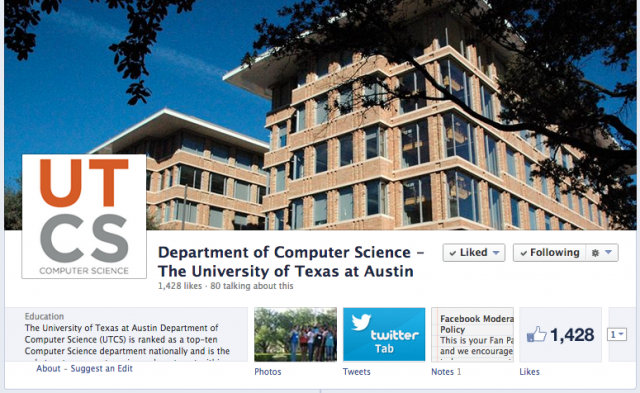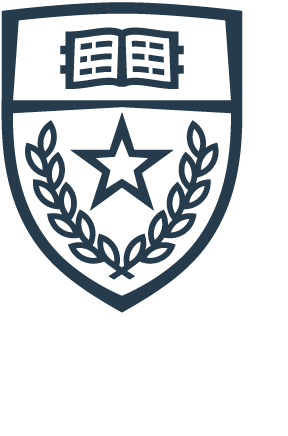Submitted by Valerie Roth on
As computer scientists, the way that we impact society seems pretty clearly laid out. We write code, and the result is new ways for people to communicate, learn, organize data, or even drive cars. Last week, however, Doug Wolfe, who is the head of operations for Facebook’s Atlas advertising platform here in Austin, came to speak to Dr. Nandakumar’s Elements of Computing in Society class with a different message. He explained that innovation is about more than just computer scientists’ skill set. It includes an entire mindset as well.
To explain this, he focused on the non-technical reasons that Facebook “won” in the social media sphere. The first reason, he explained, was authenticity. Facebook was able to give its users a sense of confidence that the people and organizations they were connecting with online were indeed who they said they were. This started with the requirement to have a university email address at Harvard to join the site, and the element of trust stayed with the company as Facebook extended its services to other users.
Next was the ability to control their growth. Unlike Friendster, which expanded too quickly, Facebook started with a very small group of users at one university. They only allowed more users to join when the company was able to handle the extra work and there was enough demand for the site in another sphere—first at other universities and then high schools, followed by the entire country and then international.
The final reason was privacy. As many audience members chimed in, the ability to control who they shared what with and who they were connected to was very important when they joined initially. Facebook’s privacy settings, along with the trust that people have in the site, facilitate this.
The issue we face in today’s society is that there is a limited number of people who can implement ideas like this. This makes the work that we actually do decide to devote our time to as computer scientists very important. There are tons of ideas that have the potential to make a huge impact, and we should strive to make them into realities—not just work for the sake of “getting things done.”
That’s not to say I recommend complaining that something isn’t worth your time or expecting to make a difference immediately. Rather, my advice is to find something that you truly believe matters to begin with. Our actions have the potential to make the world tremendously better, and at least as far as I’m concerned, I want to know that I didn’t waste this opportunity.







